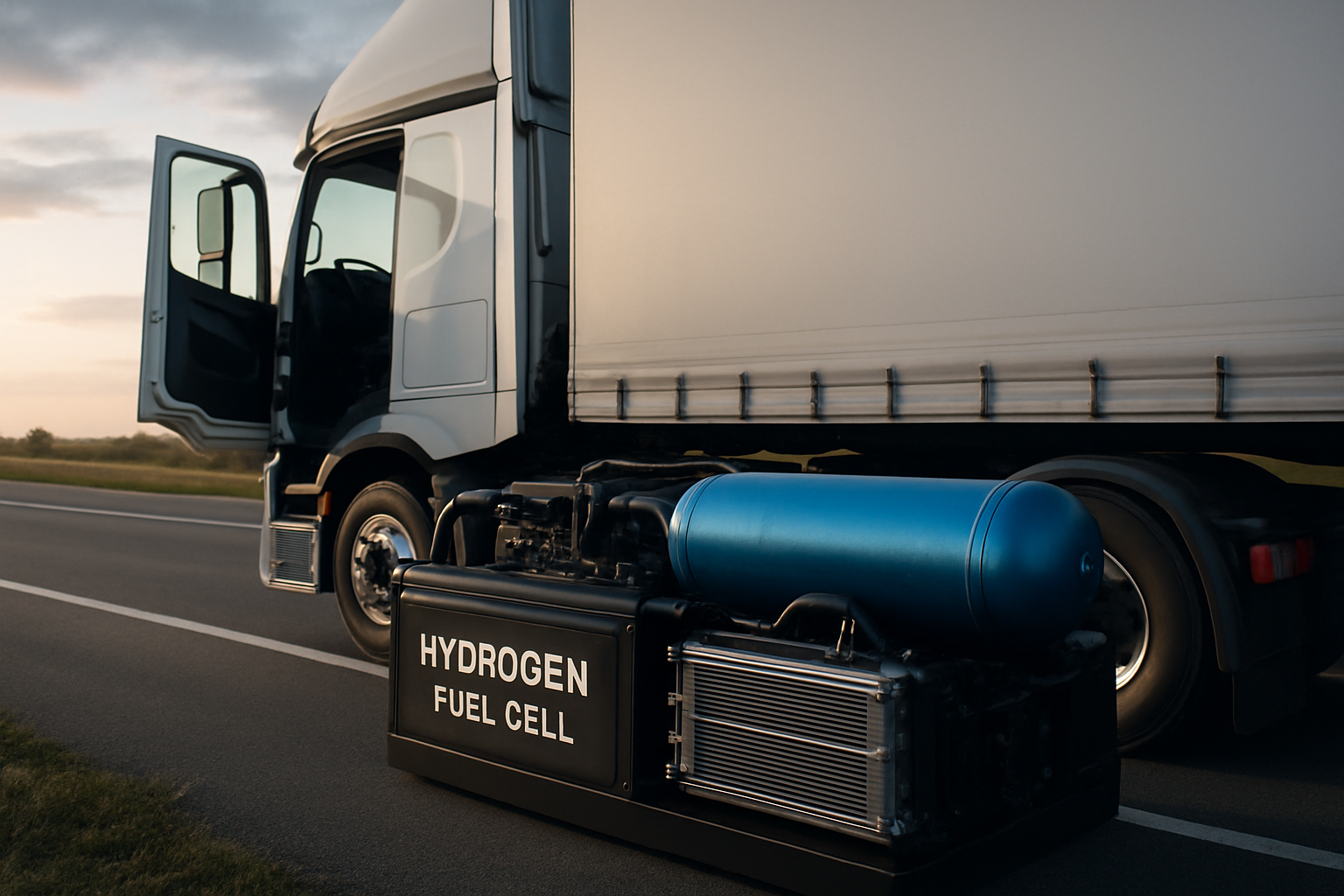Hydrogen Fuel Cells: The Quiet Revolution in Heavy-Duty Transportation
In the world of automotive innovation, one technology is quietly making waves in an unexpected sector: hydrogen fuel cells in heavy-duty transportation. While passenger vehicles have dominated the conversation around alternative fuels, the real game-changer is emerging in the realm of long-haul trucking, buses, and industrial vehicles. This shift towards hydrogen power in heavy-duty applications is not just a fleeting trend, but a potential paradigm shift in how we approach sustainable transportation for our most demanding vehicular needs.

Overcoming Infrastructure Hurdles
One of the primary challenges facing hydrogen fuel cell adoption has been the lack of refueling infrastructure. However, the heavy-duty sector presents a unique opportunity to overcome this hurdle. Unlike passenger vehicles, commercial fleets often operate on fixed routes or within defined regions. This predictability allows for strategic placement of hydrogen refueling stations, creating corridors of hydrogen availability that can support long-distance trucking operations.
Technological Advancements Driving Adoption
Recent years have seen significant advancements in hydrogen fuel cell technology, particularly in terms of durability and efficiency. Modern fuel cells can now withstand the rigors of constant use in demanding conditions, with some manufacturers reporting lifespans exceeding 25,000 hours of operation. This longevity, coupled with improvements in hydrogen production and storage, is making the technology increasingly viable for commercial applications.
Environmental Impact and Policy Support
The environmental benefits of hydrogen fuel cells in heavy-duty transport are substantial. When powered by green hydrogen (produced using renewable energy), these vehicles emit only water vapor, dramatically reducing the carbon footprint of the transportation sector. Recognizing this potential, governments worldwide are implementing policies to support hydrogen infrastructure development and incentivize the adoption of fuel cell vehicles in commercial fleets.
Real-World Applications and Case Studies
Across the globe, hydrogen fuel cell technology is moving from concept to reality in heavy-duty transportation. In Europe, hydrogen-powered buses are becoming increasingly common in urban areas, offering zero-emission public transportation solutions. In the United States, several major trucking companies are piloting hydrogen fuel cell long-haul trucks, with some reporting ranges exceeding 1,000 miles on a single tank. These real-world applications are proving the viability of the technology and paving the way for wider adoption.
The Economic Equation: Cost Considerations
While the initial cost of hydrogen fuel cell vehicles remains higher than traditional diesel alternatives, the long-term economic benefits are becoming increasingly apparent. Lower maintenance requirements, potential fuel cost savings (especially as green hydrogen production scales up), and the ability to meet stringent emissions regulations without complex after-treatment systems are all factors contributing to a favorable total cost of ownership calculation for fleet operators.
Challenges and Future Outlook
Despite the promising outlook, challenges remain. The cost of hydrogen production and distribution needs to decrease further to compete with traditional fuels on a purely economic basis. Additionally, while the technology has proven reliable, there is still a need for more widespread testing in varied operating conditions to fully validate its long-term viability.
Looking ahead, the trajectory for hydrogen fuel cells in heavy-duty transportation appears increasingly positive. As production scales up and technology continues to advance, we can expect to see more hydrogen-powered trucks, buses, and industrial vehicles on our roads. This shift has the potential to significantly reduce emissions from one of the most challenging sectors to decarbonize, marking a quiet but profound revolution in transportation.
The adoption of hydrogen fuel cell technology in heavy-duty transportation represents a confluence of technological innovation, environmental necessity, and economic opportunity. As this technology continues to mature and prove its worth in real-world applications, it may well become the cornerstone of a sustainable future for long-haul transport and beyond. The quiet revolution of hydrogen fuel cells in heavy-duty vehicles is not just changing how we power our largest vehicles; it’s reshaping the very landscape of sustainable transportation.





